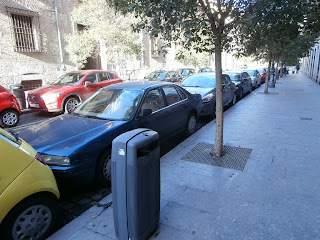Upbeat
tidings from the labour market, confirmed by figures published by the Stats
office and palpable shortage of workforce in some industries naturally prompt
thoughts on what motivates people to change their workplace. Recruitment
agencies share results of their research on this; their outcomes and real-life
observations put together form a list of factors employees take into account
when they are considering a relocation.
1. Your
boss. Some statistics prove shattered relationships with a direct manager most
often (up to 80% of instances) prompt employees to look for a new job. Your
boss may be a tyrant who never puts up with disagreement, a workaholic who
coerces their team to work as long and as hard as they do, a tormentor who
picks a victim in a team and bullies them. All characters above induce one to
quit, but even if your boss is only lazy, incompetent and afraid you may want
to take their place, the set-up is bad enough to waste your potential and
forbid you to thrive. If you are ordered about by a despot or by an idiot,
there is no point in waiting your superior gets sacked. Take matters in your
hands before you hit the roof in a bout of frustration!
2.
Colleagues. Just like a boss, the closest workmates with whom you spend several
hours a day might become a pain the arse. If you simply do not fit in with the
team (e.g. you are an extravert surrounded by introverts) the situation is
bearable, but if your team lacks team spirit, people run rings around one
another or hostility is felt in the air, time to make off!
3. The pay.
You can hear voices work is all about the money, yet a decent pay will not
compensate you for emotional ordeal that might destroy your psyche if you have
to endure it for years. Before you jump to conclusions you are underpaid, do
sound out the market to make sure competitors of your employer can offer you
more. A huge pressure on salary increases is observed in low-paid professions,
however the tide does not lift all boats. Professionals in industries where
earnings are above-average and headcount is on decline, such as financial
sector, should not reckon on easy pay rise. Moreover, HR departments bend over
backwards while grappling with payrolls and their moves vary across the
industry. Some companies lay off best-paid experts to find cheaper, yet less
competent ones and this might seem economically rational. Many more employers,
however, fail to retain (by giving a pay rise) good, yet slightly underpaid
employees who quit, but then the same employers hire less experienced new staff
and pay them more than their predecessors.
4.
Appreciation, or rather lack of it. Hardly any worker will be satisfied with
wages paid on time only. Apart from tangible, pecuniary or not, benefits,
humans long for other forms of reward. Tapping somebody on their shoulder and
saying “good job”, thanking, giving prizes will not replace bonuses but decent
bonuses without non-material reward come out shoddy!
5.
Prospects. If you feel or are genuinely told in a few years you will be doing
the same thing for the same money, then even if your job is not repetitive and
you actually like it, your motivation may plummet. Awareness of being stuck in
a dead-end street is unappealing, unless you are in a pre-retirement age and
wish to make it safely to the moment of pensioning off on your cushy stool.
6. Identity
crisis. If you do not believe in a business model of your company, you cannot
believe its well-being will translate into yours. The more serious type of the
problem is when your employer engages in illegal (or morally dubious) practices
you do not wish to take part in.
7.
Opportunity. It usually emerges unbidden, for a short moment, so you are given
little time to take it or leave it. I would hazard a guess the most successful
transfers between jobs come about when an opportunity strikes out of the blue
and one is not afraid taking a risk to seize it.
For the
very end, a sad observation I need to share. After nearly seven years of being
submerged into corporate world, I was under delusion quick advances on the
career ladder in international corporations were just thanks to sheer hard
graft, while jobs gotten via connections (not in a positive meaning of the word) were the domain of government-owned
companies and some of private small businesses. Quite recently I have been
disabused…






